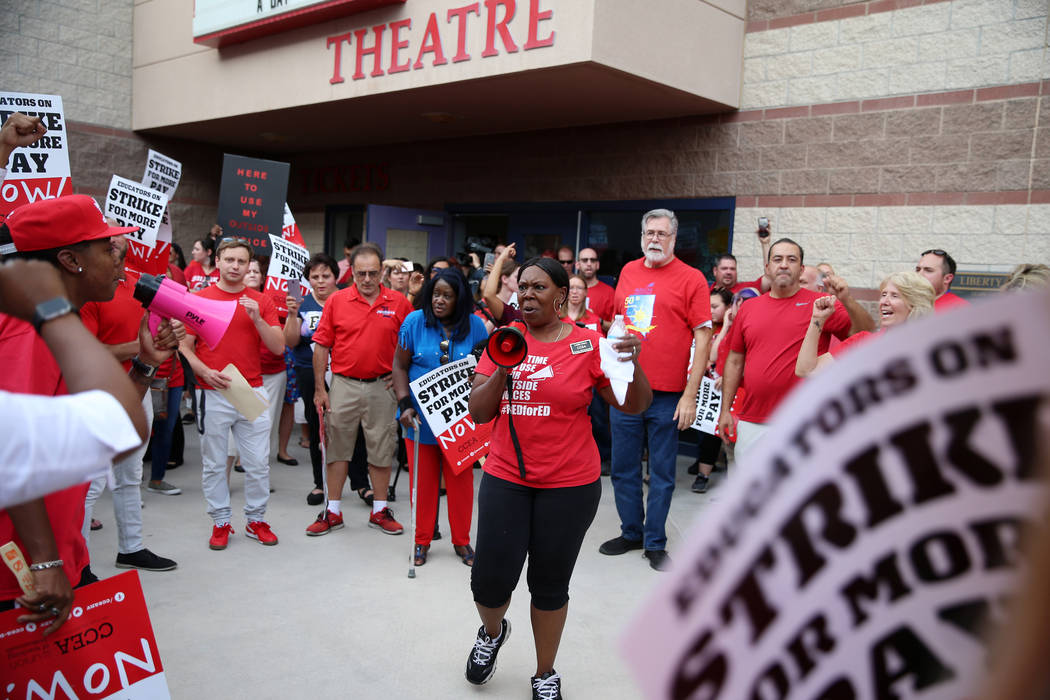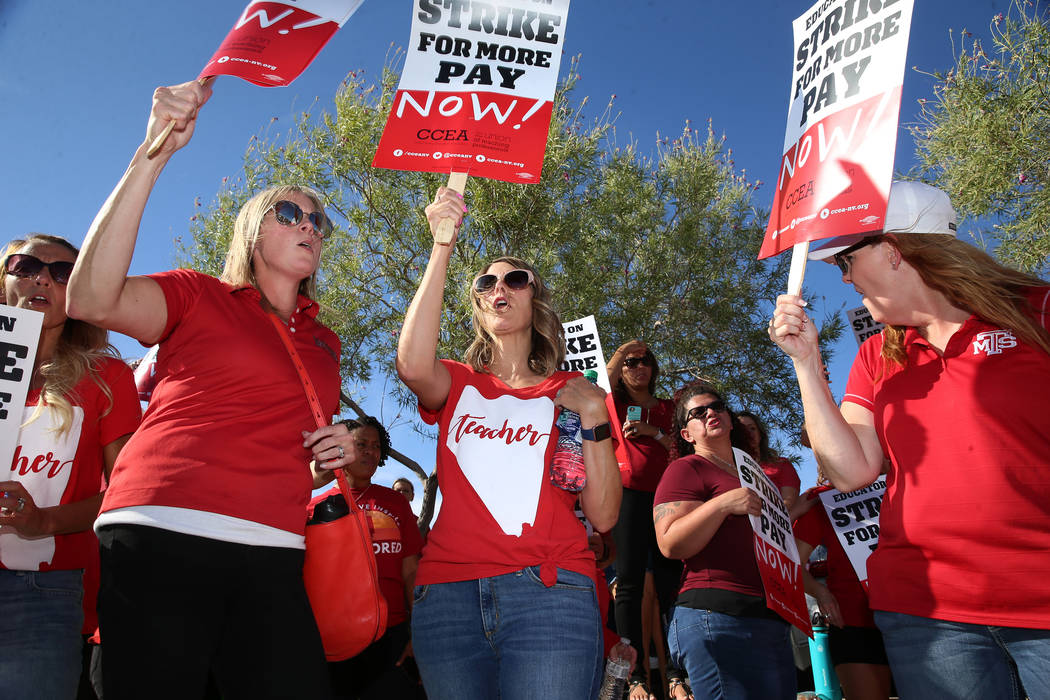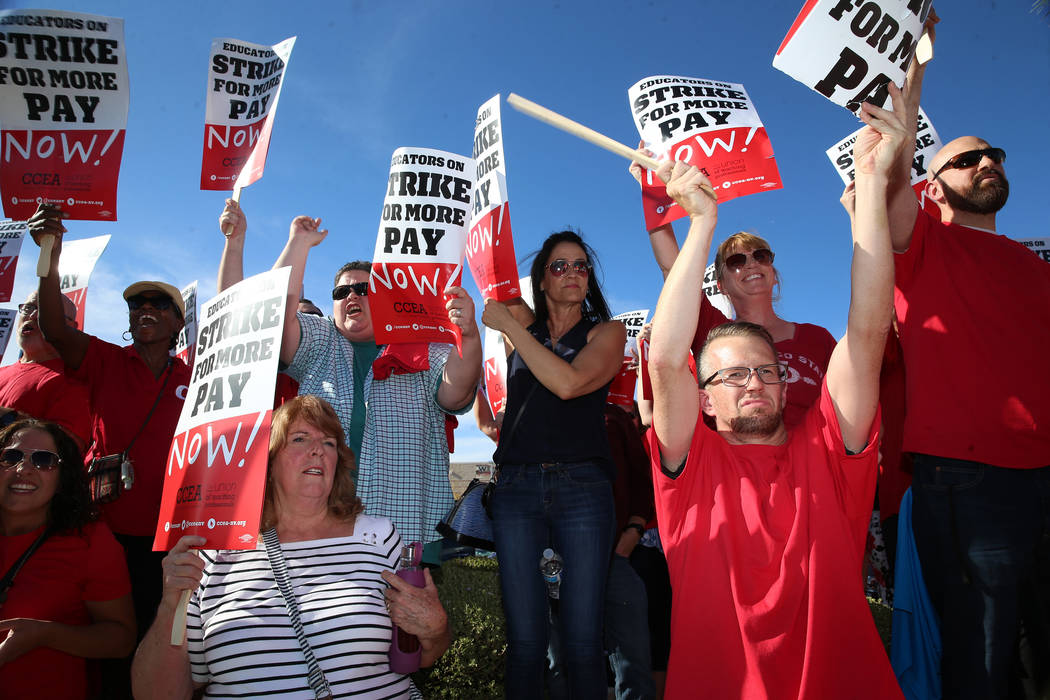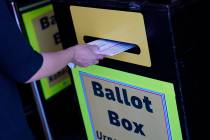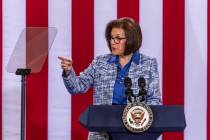VICTOR JOECKS: How a teacher strike could benefit CCSD
The leaders of the Clark County School District should be elated, not worried, about the possibility of a teacher strike. That’s because an illegal walkout gives them a chance to decertify the Clark County Education Association — if only they would take it.
By law, every public employee union must “pledge in writing not to strike against the local government employer under any circumstances.” This reflects the fact that public employees serve the public, not the other way around. Even without the ability to strike, Nevada’s collective bargaining process favors unions.
By setting a strike date, the teachers union has disavowed its pledge not to strike. Once a labor organization does that, state law allows a local government employer to withdraw recognition from the offending union.
If the district took such a step, the CCEA would no longer be the bargaining unit for teachers. Only 54 percent of teachers are currently members of the union anyway. After decertification, union officials could bluster all they wanted, but the district would set the salary schedule without negotiations.
The district would also stop collecting dues for the union. Every month, the district withholds hundreds of thousands of dollars from teacher pay checks and sends that money to the union.
It’s been doing that even while the union has spent the past several months threatening to strike. For awhile, the union was even sending out strike updates through the district’s email system.
At a meeting with the Review-Journal’s editorial board on Thursday, Superintendent Jesus Jara said the district had successfully told the union to stop. That’s a good start. The district shouldn’t be providing financial or other support to an organization attempting to break the law.
Decertifying the union would neuter the strike talk. It would have long-term benefits for the district and its students, too.
Jara has many ideas for improving education for district students. What he doesn’t have is the authority to implement those plans. That’s because whenever the district gets new unrestricted money, those dollars become available for collective bargaining.
If the district tries to withhold those dollars to pay for textbooks or to decrease class size, the union can move the negotiations to binding arbitration. The law dictates that the first thing the unaccountable, out-of-state arbitrator looks at is the district’s ability to pay for the raises.
This is why increasing base education funding won’t improve student outcomes. Any new money instead goes toward paying existing employees more for doing the same thing.
If the union is decertified, Jara no longer has to beg the CCEA for permission to implement his plans. A new union could replace the CCEA, but only after signing up a majority of teachers and receiving recognition from the school trustees. Jara would at least have a window to put new programs in place.
With four other employee unions, decertifying one wouldn’t be a cure-all. But district CFO Jason Goudie said Thursday that the other unions are more willing to link increased funding with accountability.
Jara has hinted several times that he would have preferred new funding go to reducing class size and improving professional development. But that isn’t an option when the teachers union gets to dictate how the district spends its new money.
There’s no point in having a superintendent if he isn’t able to implement his vision. Legislative Democrats aren’t interested in improving Nevada’s labor laws, but the CCEA’s strike threat offers the district a rare workaround.
Jara and the district trustees should decertify the union if members walk, which would allow them to better enact their plans to improve education.
Victor Joecks’ column appears in the Opinion section each Sunday, Wednesday and Friday. Contact him at vjoecks@reviewjournal.com or 702-383-4698. Follow @victorjoecks on Twitter.



